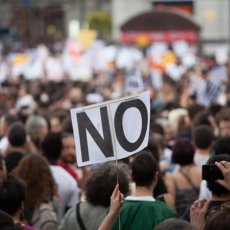
Moving identities (until 2021)
Religious identity is never static, but always in motion. In the research programme Moving identities we ask about the influence of global processes. Consider the consequences of globalisation, migration and the ecological crisis on the identity formation of people and communities. Religion is one of the determining factors in this. We examine the formation of religious identity in the past and present. We do this from different angles, theological and other. What dynamics do we see in these processes? How do they contribute (or not) to a resilient and sustainable society?
Complex identities
Our world is getting more complex by the day. This influences the way people see and experience themselves and others. Different aspects of their identity are constantly under discussion due to ubiquitous factors such as globalization, migration and increasing differences in economic position. Think of social, cultural, ethnic, national, religious, sexual and gender identities. People and groups use strategies to deal with this tension surrounding their identities. Our research focuses on the role that religious sources, beliefs and practices have in this.
Theological vision on identity and resilient societies
What 'makes' our identity Christian must be constantly rediscovered, interpreted, imagined, articulated and embodied. In constantly changing contexts. All major religions have the potential to unite people. They do this by providing people with great narratives, values, beliefs and meaningful practices. But religion can also lead to conflict and exacerbate existing conflicts. Our research focuses on these dynamics. We want to describe and theologically evaluate processes of Christian or religious identity formation. In this way we want to make a distinctive contribution to a resilient and just, sustainable world.
Long-term perspective
A long-term perspective is needed to investigate the influence of religious sources, beliefs and practices on human identity formation in a complex post-Christian society. Much can be learned from historical processes of religious identity formation. After all, these have an effect on the present. In addition, cultural and religious diversity and global power structures also played an important role in the emergence and permanent change of religious traditions and practices in the past. In our research group, researchers work together who are working on different historical periods and various religious and theological traditions. As a result, we are ideally equipped to develop such a long-term perspective.
